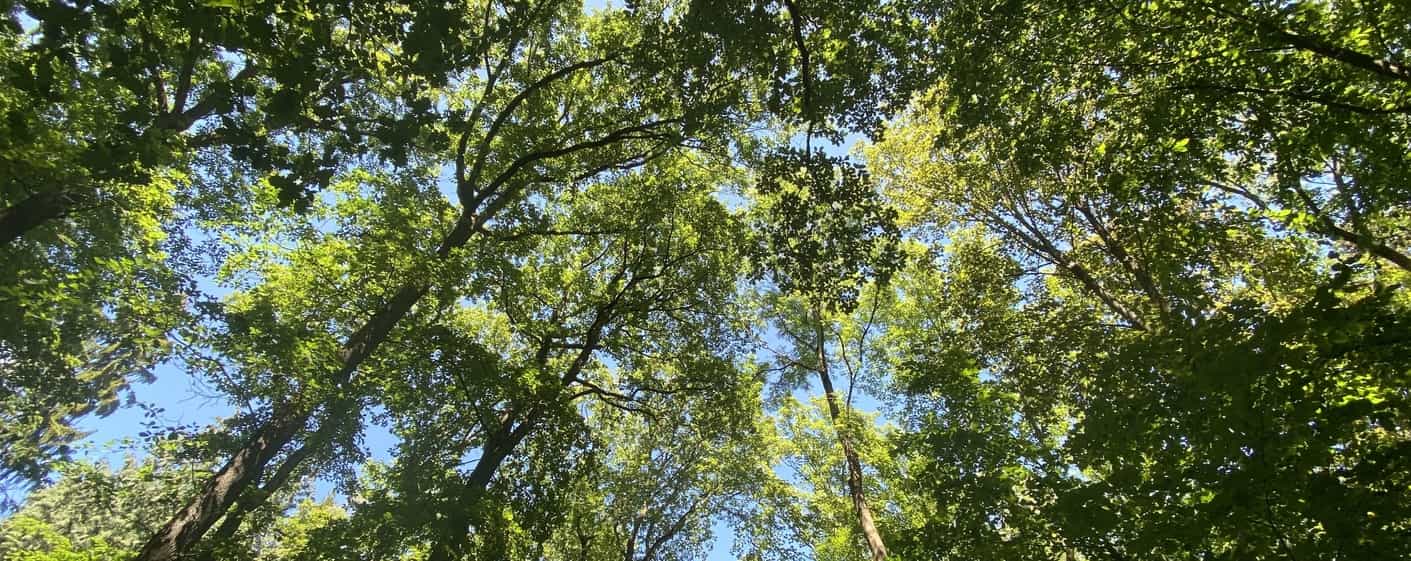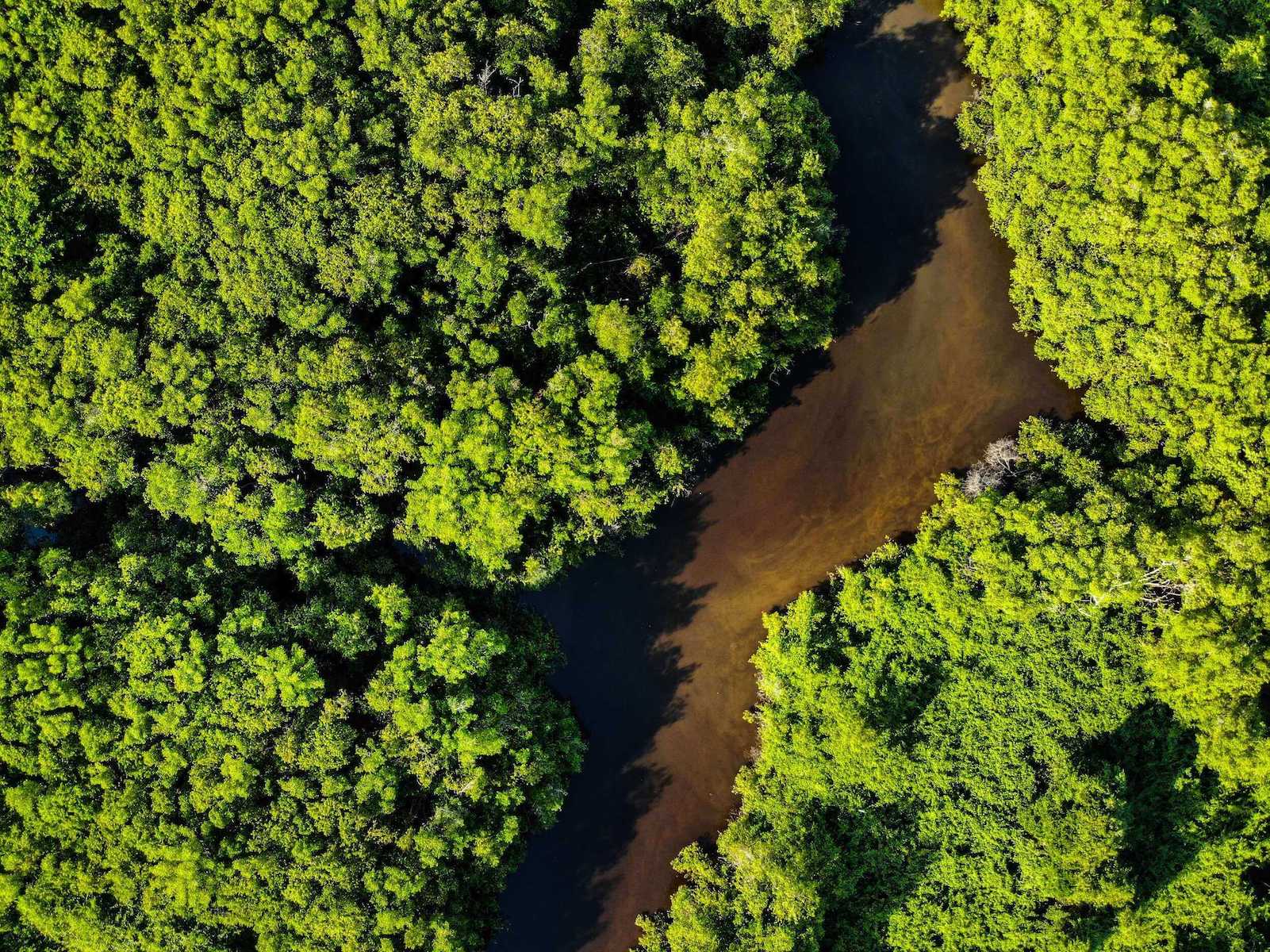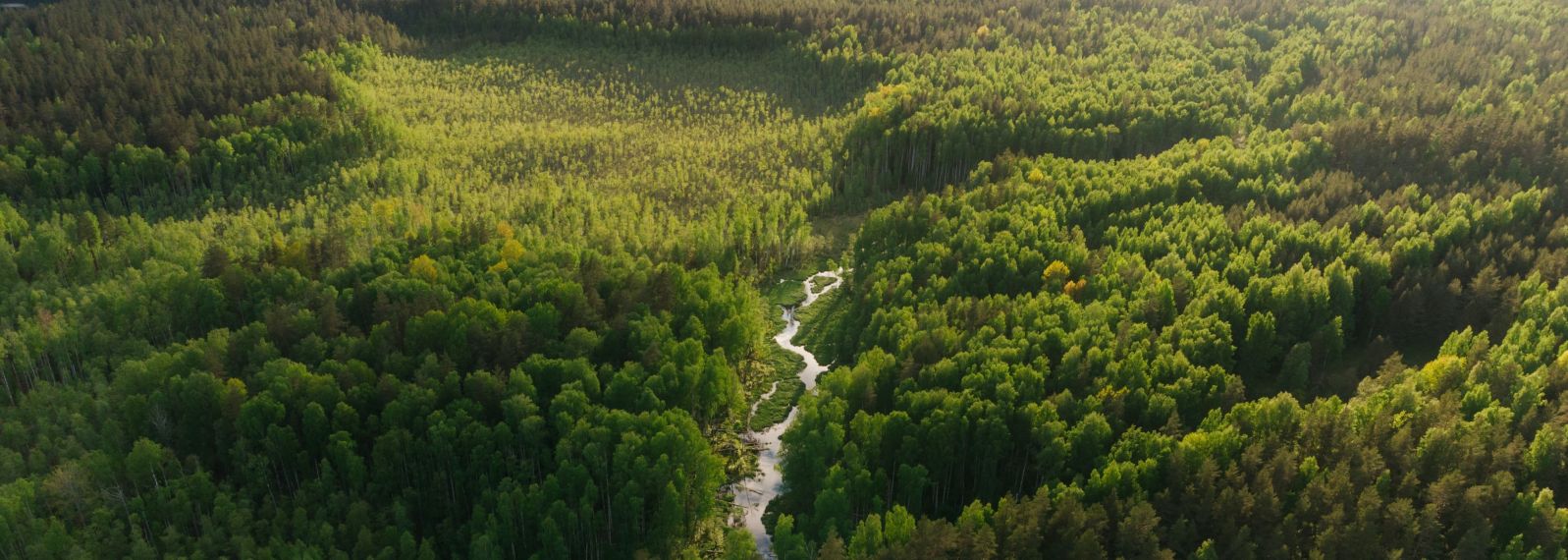Treeapp started with a simple promise, planting trees. This natural process has organically supported life on this planet for over 370 million years - the estimated date of the first tree-like organism. We know that tree planting alone is only one part of the solution. That is why a primary goal of Treeapp is to bring together a community to share ideas about why building a sustainable future is so important.

Photo: Treeapp volunteer photo of a forest, June 2020
In this blog, I would like to tackle the current climate crisis from a thought-provoking angle by introducing the carbon cycle. Ultimately, I will generate a carbon perspective. The aim of the game is to remove carbon from the atmosphere. This means getting more carbon, in the form of CO2, safely stored in the ground because along with other greenhouse gases it heats the planet up. When we emphasise the dual need for tree planting and emission reduction, we actually engage with both ends of this circular economy.

Photo: Treeapp infographic on the carbon cycle
Carbon is really common and is well known as one of the key building blocks for organic life - we are all carbon based lifeforms. Humans and animals breathe it out. Plants breathe it in. Well technically they don’t breathe it in. Let me explain. Plants absorb carbon. They achieve this almost miraculous feat through a simple but ingenious biochemical reaction, called photosynthesis. Photosynthesis is a common scientific term, but if we break it down the Greek word ‘photo’ means light and ‘synthesis’ means to put together. It literally means using light to create something. Here, plants bring together light (from the sun), carbon dioxide (in the air) and water to make energy. Another way to think about this process would be ‘clean air by nature’ – a phrase coined by the United Nations Environmental Program. It is something that all plants do, whilst the sun is up, every single day. Understanding and controlling this system of carbon transformation will give us the tools to allow life to flourish.
This elegant process fundamentally defines the nature of organic life as we know it. Plants turn light and CO2 into food. As a result, they create oxygen (which we breathe) and store carbon. Most of this carbon ends up in the ground in a process known as sequestration or ‘soil carbon storage’. We actually dig up and use this stored carbon energy in the form of fossil fuels, which has negative consequences because we put that carbon back into the atmosphere. Plants use the green stuff, chlorophyll, which maximises the efficiency of this process. As trees, and other green plant based life like plants or seaweed, absorb and transform carbon they act as regulators. They maintain a chemical balance in the earth’s ecosystem. Ultimately, this stops the planet from heating up and makes the earth that iconic blue and green bowl you can see from space.
By focusing on carbon, and the carbon footprint of your daily life, you can help make sure there is less carbon up there and more carbon safely stored in the ground. By planting more trees and helping them realise their clean air potential, Treeapp offsets emissions and also creates a more carbon conscious community. As outlined by the Carbon Literacy Project it is our personal responsibility to have ‘an awareness of the carbon costs and impacts of everyday activities’.

Photo: Treeapp on mobile phone (Source: Treeapp)
We can all learn and grow to become carbon experts. Whilst Treeapp plants trees it also fosters a network of like minded individuals who are passionate about a more sustainable future for all. By working with our planet, we want to ensure a leafy green future. Helping to support these ecosystems also reduces inequality and empowers local communities, who are subject to deforestation (click the links to find out more about our NGO partners One Tree Planted and Eden Reforestation Projects . Help us in our reforestation mission and we can help balance carbon levels and limit (or even one day reverse) rising temperatures and global warming.
Plant a tree, for free in less than a minute.








